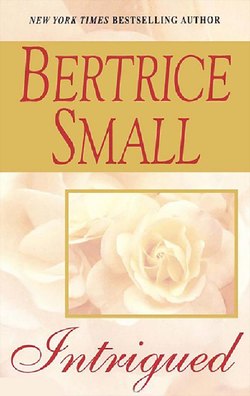Читать книгу Intrigued - Bertrice Small - Страница 6
На сайте Литреса книга снята с продажи.
ОглавлениеPrologue
SEPTEMBER 3 , 1650
James Leslie, fifth Earl and first Duke of Glenkirk, lay dying on the battlefield at Dunbar. Around him he could still see and hear clearly many of the brave, loyal men who would join him in death this day. The Scots were being brutally beaten by an army but half their size, yet with mindless arrogance they had moved the previous day from their position of strength on the hills surrounding Dunbar’s plain to boldly make their encampment directly before the English. It was a fatal mistake, for the terrain was impossible to defend, as the Scot Covenanter army of King Charles II quickly discovered. Of the twenty-three thousand who had seen the day begin, only nine thousand remained to see it end amid the smoking ruins of the Royal Stuart’s hopes.
Among the survivors was Red Hugh More-Leslie, the Duchess of Glenkirk’s personal captain, who, seeing his master fall, had leapt over the dead and wounded to cradle James Leslie in his arms.
“We’ll get ye out of here, my lord,” Red Hugh said.
James Leslie shook his head faintly, saying but one word before he died. “Jasmine.”
Cursing and weeping alternately, Red Hugh gathered the surviving men of Glenkirk to him. Of the hundred and fifty who had come to Dunbar, thirty-six remained. Putting their duke’s body over his horse, and taking mounts where they could find them, the Glenkirk men quickly departed the battlefield, swiftly heading northeast. Cromwell’s men were not noted for showing respect to the dead, or to the survivors; but Red Hugh would not allow his master’s body to be pillaged or savaged. James Leslie would be buried on his own lands, as had all those lords of Glenkirk who had come before him, except his own father.
And most of the past Glenkirk earls had died in battle, Red Hugh remembered. In battles precipitated by the Stuarts, the captain thought grimly. Solway Moss in 1542 had taken the second earl, and his heir, along with two hundred men and boys from the estates of Glenkirk, Sithean, and Grayhaven. Red Hugh’s own great-grandfather had died at Solway Moss with the Leslies. His grandfather, the first Red Hugh, had survived to help bring the others home. Now history repeated itself in a particularly ugly way.
His mistress, the duchess, had known before they had left Glenkirk last month that she would not see her beloved Jemmie alive again. Red Hugh More-Leslie had seen the resignation and sorrow in her eyes as she bid them all farewell. But the duke had lived a good life. He had been an honorable man. And seventy-two years was a goodly span, Red Hugh reasoned, as they rode toward home.
Messengers would have to be dispatched to his two youngest sons in Ulster, to his daughters and sons in England, and to the daughter in the New World. They would be saddened, he knew, but the youngest of them, Mistress Autumn, would be absolutely heartbroken. She had been visiting in England this summer but been unable to return to Scotland because of the warring factions. What would happen to her now? he wondered to himself. Her father’s pet, the lass had been, and spoiled more than any of them, being the last. Well, ’twas not his business. Lady Autumn Rose Leslie was now responsibility of her brother, now the second duke, and her mother, now the dowager duchess. Certainly they would know what to do with her.
After several long, hard days of travel, the towers of Glenkirk Castle came into view. For a moment Red Hugh stopped and stared, one thought, and one alone, clear in his head. James Leslie was dead, and life as they had all known it would never be the same again. Raising his big, gloved hand, Red Hugh signaled his men to move onward. The duke’s personal piper walked slowly before them playing the rich and reedy tones of Lament for Glenkirk, which rose up, alerting the castle that James Leslie was coming home for the very last time. And after a few moments he could see the widowed duchess standing on the drawbridge, stoically awaiting them. Nay, naught would ever be the same again, Red Hugh thought sadly.
